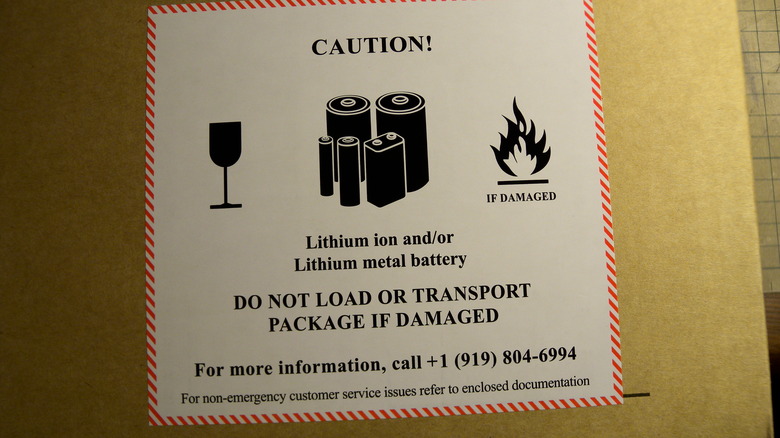Are Electric Vehicles Causing Cargo Ships To Catch Fire?
The promise of electric vehicles is a cleaner environment unshackled from fossil fuels. However, it seems as if the proliferation of this type of automobile might have some unintended consequences that may require a shift in different industries. This is because electric vehicles, although better for the planet than the standard issue combustion engine, come with their own issues, like the fact that electric vehicles are much more vulnerable and prone to fires — a side effect of the lithium-ion batteries often found within.
As such, there has been a disturbing increase in cargo ship fires for those shipping electric vehicles, like the 2022 blaze that destroyed the vessel Felicity Ace, which was filled with automobiles. With these recent developments, some may wonder if electric cars are squarely to blame. While it is true that electric vehicles suffer from flammability due to the composition of the batteries, it seems that the answer has a bit more nuance than just blaming electric cars. This is because cargo ships have long accounted for the presence of internal combustion engine cars, but the industry is just now catching up with the growing number of electric vehicles in the world and how they handle this delicate cargo.
The dangers of lithium-ion batteries is well known
The issues surrounding the flammability of lithium-ion batteries have become a paramount concern with the number of electronics currently in the market, whether vehicles or smartphones. Special precautions must be taken while shipping this type of battery in airplanes, which usually results in several warning labels placed on boxes and containers that denote lithium batteries within, called a Class 9 dangerous goods label. These batteries are usually blamed for the fires affecting cargo ships. They have the unfortunate side effect of making these fires much more hazardous due to their chemical composition — lithium-ion battery fires burn much hotter than normal, and there have been reports of these kinds of infernos melting pavement.
Oddly enough, Kelly Blue Book has released a report that says electric vehicles experience far fewer car fires than combustion engines, so the recent fears about electric vehicles starting serious fires might be greatly exaggerated.
[Featured image by Osamu Iwasaki via Wikimedia Commons | Cropped and scaled | CC BY-SA 2.0]
Safety measures must change to account for shipping electric vehicles
In an interview with Autoweek, seasoned captain and maritime consultant Rahul Khanna explained that fire is one of the most significant risks for a ship. Over the years, ships have operated based on shipping combustion engines, and the industry has yet to revise safety protocols for the growing number of electric vehicles. This would include making sure that electric vehicles are properly secured and not bumping into each other — the common reason for this kind of fire.
Khanna added, "So that's one of the key issues. If they do not have enough time to secure all the cars before sailing, the vessel comes out and suddenly encounters bad weather, the cars which were not lashed or not adequately lashed may become loose and have an impact that can cause a fire. And that is the cause of fire in many cases."
The simplest solution to this problem is to make sure that all electric vehicles are safe and secure and won't have the opportunity to bump into each other. Shipping companies cannot treat electric vehicles the same as combustion ones. Hopefully, once new safety standards are in place, more measures will be used to not only prevent such occurrences but also be able to effectively handle them if they do.
[Featured image by Alf van Beem via Wikimedia Commons | Cropped and scaled | CC0 1.0]


